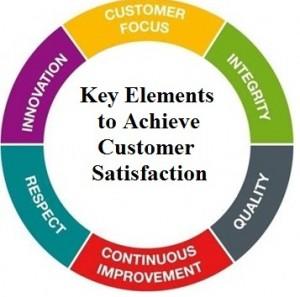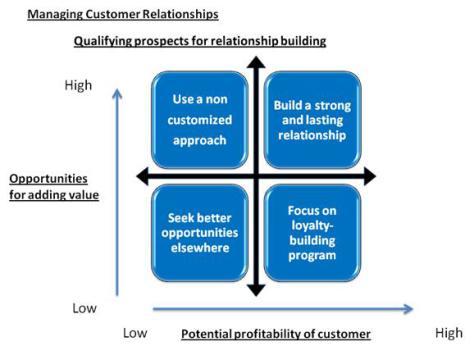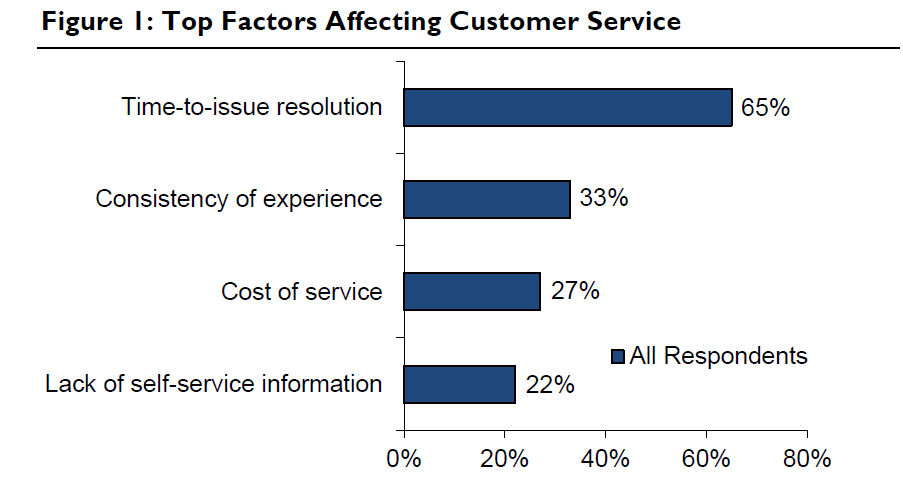Introduction
The hospitality industry in Cyprus has grown over the years due to the increasing number of tourists who come to the country regularly. Many hotels and restaurants have sprung up making the industry very competitive. Londa Hotel is one of the most successful hotels in this country. However, this firm must find ways of maintaining this level of success despite the increasing levels of competition in the industry. The only way of doing this is through customer relationship management. According to Marra and Bogue (2006), customer relationship management has become a critical component of marketing that any firm cannot afford to ignore. This paper seeks to develop a customer service plan for the Londa Hotel that will help it to develop and retain a pool of loyal customers.
Customer Service Plan
Tourism remains the central pillar that supports the hospitality industry in Cyprus. It means that most of the visitors who frequent hotels in this country are people coming from various parts of the world. For this reason, the management of this hotel should find a way of meeting the needs of the clients who visit to turn them into evangelists. As they leave the hotel back to their country, they should be able to recommend this hotel to friends and relatives who are planning to visit the country. In this strategy, the point of focus will be to outline factors that the management of this company should consider to ensure that its customers get the best value.
Factors to Consider When Managing Customers
To improve service delivery, the Sales and Marketing unit of Londa Hotel will need to consider the following factors:
Attentiveness
In this industry, the impression that customers get on their first visit means everything in terms of attracting and retaining them. The hotel should remain attractive at all times. It should be clean and with the right equipment in the right places. It will convince customers that they are cared for at the facility.
Appearance
The management of the hotel should ensure that it remains organized and with the right themes based on tastes and preferences. It means that it may be necessary to have different themes in different lounges just to ensure that a client is offered a variety of choices.
Speed of service
According to Bhatnagar, “Speed is an important factor that this hotel must give special attention,” (2006, p. 45). Londa is a five-star hotel that is frequented by the rich. This segment of customers is always very demanding. They do not tolerate lateness and neither do they tolerate poor service delivery because of the high prices they are willing to pay. The hotel must be prompt in offering their service to these customers.
Friendliness
In this industry, firms must try to make customers feel relaxed at all times. It means that they have to be friendly to the patrons. They must put on a smile and learn how to be courteous when dealing with anyone who calls or visits. It is the only way, which will make visitors feel comfortable when they visit the firm.
Knowledge
Martínez and Vargas (2013) say that one of the biggest challenges that some hotels face is that they sometimes have to handle clients who come from various parts of the world with a variety of needs. Sometimes language becomes a major barrier to effective communication. Londa will have to hire people who can speak different languages. Employees who handle customers directly should know the food they present and other fundamentals that may be of interest to customers. They should not appear to be ignorant before these visitors.
Efficiency
Efficiency is another factor that must be put into consideration in this firm. Efficient product preparation and delivery will define the level of customer satisfaction. It may not be enough to produce delicious food that meets the expectations of the patrons. How food is served must also be flawless at all times (Mehmetoglu & Engen 2011). The waiters and waitresses must not just have the good looks and smiles on their faces, but also knowledge on how to offer service to customers of different backgrounds.
It is important to note that Londa meets most of the above factors, and that is why the researcher considered it a successful firm in this country. It is a top hotel that is frequented by local and international clients. The factors given above are the essential requirements that will help Londa to be competitive in the market. However, Bhal (2005) says that a firm should be unique to emerge as the top contender, especially when operating in a competitive market. The hospitality industry is very competitive, and this means that the hotel will need to go beyond ordinary standards. Using Carmine Gallo’s “APPLE” acronym may be helpful at this stage. It means that the Londa Hotel will need to do the following when handling an individual customer that visits it.
Approach clients from a personalized perspective
Every patron that comes to this hotel is unique in one way or the other. The employees must be trained to approach new patrons from an individualized perspective. The employee should take some time to understand their personal needs to know how to handle them.
Probe customers politely
Listening alone may not be the best way of understanding customer needs. The waiter may need to investigate the newcomer to know his/her particular needs. It should be done politely and with lots of respect.
Present the best solutions to the customer
Having probing the patrons, the waiter will then float possible solutions that exist at that moment. Trott (2011) says that the attendant should be able to know whether the client wants premium or standard services based on their dress code and what they specifically request. When giving a list of options, it may be necessary to start by giving the most appropriate solution that meets the expectations of the customers.
Listen to their resolve or concerns
Once possible options have been floated, it is expected that the client will pick what they consider to be the best alternative. In some cases, the newcomer may have an issue with the floated options. The attendant should listen carefully to the options or resolves to determine the best course of action (Martorella 2013). If it is a concern, then the attendant can present other existing options. If it is a resolve, then the next step should follow
End with a fond farewell
When ending a conversation with a client, then the attendant should give a fond farewell that is memorable. The attendant should not forget to make an invitation to the customer reminding them that they should come again. The overall aim of the entire process is to ensure that customers are adequately satisfied customers (Gallo 2012). Dissatisfied customers may not only avoid making repeat services but also advise friends and family members against visiting the hotel. In extreme cases where they feel that their rights have been violated, they can even consider using the firm. Such eventualities should be avoided at all costs.
Principles of Excellent Customer Service
The primary focus of this plan is to create a large pool of loyal customers for the Londa Hotel. However, doing this may not be an easy task. The above factors are some of the suggestions that the firm will consider (Darke & Stewart 2015). However, it will need to go the extra mile in meeting the expectations of its customers. The figure below shows some of the essentials of excellent customer service that may be helpful to the marketing unit of this firm,

The first element is customer focus when dealing with all the activities in the firm. According to Crawford and Benedetto (2011), the central focus of any firm that seeks to maximize its profits is to ensure that its customers are satisfied. For a hotel, customer focus should start by sourcing for high-quality raw materials used in preparing the meals. The themes in the hotel, the music, mode of service delivery, and any other activity that the firm engages in should be geared towards offering quality service to the customers. It means that it may be necessary to consult the customers to offer them a unique experience whenever they visit the facility.
Integrity is another factor that many firms all over the world are yet to embrace fully. When handling customers, integrity should be given priority. The attendants should be reminded that they should not take any belongings of the visitors unless it is with their express permission. These visitors should know the ingredients of all types of food presented to them. According to Collis and Hussey (2013), integrity does not end with being trustworthy to the customers. It also involves respecting the law and maintaining a good relationship with the public. Londa will have to avoid controversies or any adverse publicity that may hurt its image in the corporate world. International and even local visitors are always keen to avoid hotels that have earned negative publicity.
The quality of the service and products offered should be above board. Quality products can be defined in various perspectives. According to Casadesusa and Alonsoc (2010), genetically modified foods have raised controversies all over the world. Some people do not trust non-organic foods. They may define quality based on whether foods presented to them are organic or not. It means that this firm will need to take control of its supply chain. Quality should be a priority from the moment of buying the raw materials, its transportation, preparation, and finally the delivery process. Value chain management strategies may be applicable at this stage.
Continuous improvement is another critical element that Londa will need to take into consideration. As Annabelle (2013) says, it may not be easy to achieve perfection in the modern dynamic world. New things keep emerging that need continuous learning. That is why it is necessary to have a system that allows for continuous improvement within the firm. When a customer makes an observation or suggestion, it should be a reason enough to adjust. Next time such customer visits, the observation should be on a different thing because the previously identified issue shall have been addressed. It may even be necessary to allow employees to go through regular training to upgrade their skills.
Respect is a fundamental factor in management that is mostly abused by people who are expected to uphold it. Adetule (2011) says that it is not possible to respect disrespectful people. Many managers expect their employees to be respectful to them and their customers while all they do is to show them contempt. They shout at them and issue an instruction in negative and commanding tones. What these managers always achieve is to create fear and contempt among their employees (Wolff & Wimberly 2014). They may not show this to their managers for fear of losing their jobs. However, the clients will be able to read their frustration in one way or the other. At Londa, the management will need to respect their employees. It is through this respect that a close employer-employee relationship will be developed. The ultimate beneficiary of such good relations is the customer.
According to Bakacsi (2008), innovation is currently a factor that firms cannot ignore giving the increasing level of competition. Tourism is one of the major industries in Cyprus. This industry is closely intertwined with the hospitality industry. The increasing number of tourists in the country has seen the rise of local and international hotels in the country. It means that the level of competition is also getting very high. The only way of dealing with this competition is to remain innovative. In this industry, innovativeness can come in various forms (Quintero & Lee 2015). Londa can be innovative by coming up with new foods that are unique to the market. The innovation may also be in the form of service delivery. Coming up with something new that other market rivals do not offer may be one of the ways of attracting and retaining a pool of loyal customers.
Managing customer relationships
Londe may consider using the following concept to determine how to build a strong relationship with its clients in the market based on their unique needs.

Factors affecting customer service
The table below shows major factors that may affect customer service at Londa. The management should take note of them when implementing this plan.

Conclusion
The detailed customer service plan seeks to ensure that Londa develops a pool of loyal customers. However, developing a pool of loyal customers is an extremely challenging task. Failure to meet the expectations of the customer may lead to serious consequences for the firm. As shown in the discussion above, this plan goes beyond ensuring that the products offered are of the right quality. It also focuses on the service delivery method, especially for international customers who may have unique needs. The appearance of the hotel and the type of furniture may also be adjusted to make the hotel’s appearance meet the expectation of its customers.
List of References
Adetule, J 2011, Handbook on management theories, Author House, Bloomington.
Annabelle, M 2013, ‘Notes from a Small Island: Researching Organisational Behaviour in Healthcare from a UK Perspective’, Journal of Organisational Behaviour, vol. 27, no. 7, pp. 851-867.
Annacchino, M 2003, New Product Development from Initial Idea to Product Management, Elsevier Butterworth-Heinemann, Belmont.
Bakacsi, G 2008, Acquisitions and organisational change: an interview with Professor, Journal for East European Management Studies, vol. 3, no. 2, pp. 189-191.
Bhal, K 2005, ‘Dyadic and Average Leadership Styles as Predictors of Subordinate Satisfaction, Commitment and Organisational Citizenship Behaviour’, Journal of Industrial Relations, vol. 40, no. 3, pp. 372-385.
Bhatnagar, J 2006, ‘Correlates of Organisational Learning Capability: An Empirical Analysis’, Journal of Industrial Relations, vol. 42, no. 1, pp. 42-56.
Casadesusa, M & Alonsoc, M 2010, ‘The future of standardized quality management in tourism: evidence from the Spanish tourist sector’, The Service Industries Journal, vol. 30, no. 14, pp. 2457–2474.
Collis, J & Hussey, R 2013, Business Research: A practical guide for undergraduate and postgraduate students, Roches, Swaziland.
Crawford, C & Benedetto, A 2011, New Products Management, McGraw Hill International, New York.
Darke, D & Stewart, M 2015, North Cyprus, Cengage, New York.
Finlayson, D 2009, ‘The socio-economic environment in the United States’, Research Intelligence, vol. 1, no. 1, pp. 22-36.
Gallo, C 2012, The apple experience: Secrets to building insanely great customer loyalty, McGraw-Hill, New York.
Kotler, P & Keller, K 2012, Managing Marketing, Pearson, New York.
Marra, R & Bogue, B 2006, A Critical Assessment of Online Survey Tools, The Pennsylvania State University, Columbia.
Martínez, A & Vargas, A 2013, ‘The Strategic Management Process and the Innovative Capacity of the Spanish Hotel Industry’, Journal of Hospitality Marketing & Management, vol. 22, no. 1, pp. 596–618.
Martorella, O 2013, ‘Choice of market entry mode by Balearic hotel chains in the Caribbean and Gulf of Mexico’, International Journal of Hospitality Management, vol. 32, no. 3, pp. 217–227.
Mehmetoglu, M & Engen, M 2011, ‘Pine and Gilmore’s Concept of Experience Economy and Its Dimensions: An Empirical Examination in Tourism’, Journal of Quality Assurance in Hospitality & Tourism, vol. 12, no. 2, 237–255.
Quintero, J & Lee, J 2015, Cyprus, Victoria Lonely Planet, Footscray.
Trott, P 2011, Innovation Management and New Product Development, FT Prentice Hall, New York.
Wolff, H & Wimberly, H 2014, 100 hotels & resorts: Destinations that lift the spirit, Mulgrave, Images Pub, Australia.